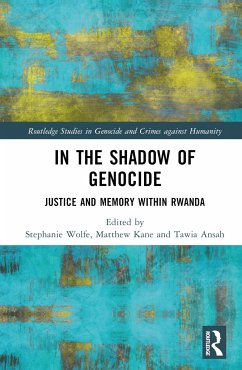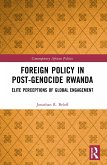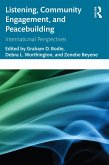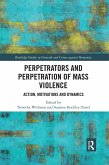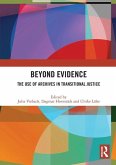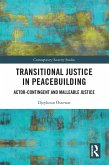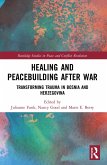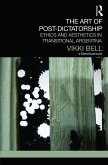This book brings together scholars and practitioners for a unique inter-disciplinary exploration of justice and memory within Rwanda.
It explores the various strategies the state, civil society, and individuals have employed to come to terms with their past and shape their future. The main objective and focus is to explore broad and varied approaches to post-atrocity memory and justice through the work of those with direct experience with the genocide and its aftermath. This includes many Rwandan authors as well as scholars who have conducted fieldwork in Rwanda. By exploring the concepts of how justice and memory are understood the editors have compiled a book that combines disciplines, voices, and unique insights that are not generally found elsewhere.
Including academics and practitioners of law, photographers, poets, members of Rwandan civil society, and Rwandan youth this book will appeal to scholars and students of political science, legal studies, French and francophone studies, African studies, genocide and post-conflict studies, development and healthcare, social work, education and library services.
The Open Access version of this book, available at www.taylorfrancis.com, has been made available under a Creative Commons Attribution-Non Commercial-No Derivatives (CC-BY-NC-ND) 4.0 license.
It explores the various strategies the state, civil society, and individuals have employed to come to terms with their past and shape their future. The main objective and focus is to explore broad and varied approaches to post-atrocity memory and justice through the work of those with direct experience with the genocide and its aftermath. This includes many Rwandan authors as well as scholars who have conducted fieldwork in Rwanda. By exploring the concepts of how justice and memory are understood the editors have compiled a book that combines disciplines, voices, and unique insights that are not generally found elsewhere.
Including academics and practitioners of law, photographers, poets, members of Rwandan civil society, and Rwandan youth this book will appeal to scholars and students of political science, legal studies, French and francophone studies, African studies, genocide and post-conflict studies, development and healthcare, social work, education and library services.
The Open Access version of this book, available at www.taylorfrancis.com, has been made available under a Creative Commons Attribution-Non Commercial-No Derivatives (CC-BY-NC-ND) 4.0 license.
"Having walked through the killing fields of Rwanda shortly after the genocide there, I can attest as to the importance of first-hand knowledge of this overwhelming atrocity. In the Shadow of Genocide captures such testimonies from those who experienced the genocide and its aftermath and examines critical issues of justice and memory a quarter century later."
David J. Scheffer, former U.S. Ambassador at Large for War Crimes Issues (1997-2001) and author of All The Missing Souls: A Personal History of the War Crimes Tribunals.
"In the Shadow of Genocide is the embodiment of a broader discussion of transitional justice, beyond criminal justice or truth commissions, incorporating the necessary range of concepts of justice and memory that are required for a community to progress after conflict/genocide. An inclusive and diverse range of authors, including Rwandan voices, makes this an important and unique book dealing with the aftermath of genocide and conflict in Rwanda and beyond."
Melanie O'Brien, Associate Professor of International Law, University of Western Australia; President, International Association of Genocide Scholars.
"This important book provides a holistic look at justice, truth, and memory in post-genocide Rwanda. Its most significant contribution may be in bringing together and preserving diverse and less often heard voices, including those of Rwandan scholars, survivors, artists, and youths."
Jennifer Trahan, Clinical Professor, NYU Center for Global Affairs and author of Genocide, War Crimes and Crimes Against Humanity: A Digest of the Case Law of the International Criminal Tribunal for Rwanda
"After a quarter century, one might think that the story of the genocide in Rwanda had been fully told. Then comes In the Shadows of Genocide, providing new accounts and a novel analysis of genocide and recovery, an invaluable contribution to the historical record."
Leila Nadya Sadat, Director of the Crimes Against Humanity Initiative and Special Adviser on Crimes Against Humanity International Criminal Court Prosecutor
"In the Shadow of Genocide is essential reading on justice and memory in Rwanda since the 1994 Genocide Against the Tutsi. This interdisciplinary book features insightful, original contributions from a diverse array of scholars and practitioners, young and older writers, and Rwandans and non-Rwandans who have conducted significant fieldwork in Rwanda. Highly recommended."
Zachary D. Kaufman, J.D., Ph.D.; Visiting Associate Professor of Law, Washington University in St. Louis School of Law; Associate Professor of Law and Political Science & Co-Director of the Criminal Justice Institute, University of Houston Law Center, and author of United States Law and Policy on Transitional Justice: Principles, Politics, and Pragmatics
"During my time at the International Criminal Tribunal for Rwanda, I led the prosecution of the leaders of the hate media and met with victims who shared recollections very much like those of Consolee Nishimwe who tells her story in these pages. Each witness has a searing experience to share, a contribution to our understanding of what occurred and why we must act to prevent such atrocities in the future. In the Shadows of Genocide brings to us accounts of human suffering and survival that might otherwise be lost forever."
Stephen Rapp, Former U.S. Ambassador-at-Large for Global Criminal Justice, and former international prosecutor at Rwanda and Sierra Leone Tribunals
David J. Scheffer, former U.S. Ambassador at Large for War Crimes Issues (1997-2001) and author of All The Missing Souls: A Personal History of the War Crimes Tribunals.
"In the Shadow of Genocide is the embodiment of a broader discussion of transitional justice, beyond criminal justice or truth commissions, incorporating the necessary range of concepts of justice and memory that are required for a community to progress after conflict/genocide. An inclusive and diverse range of authors, including Rwandan voices, makes this an important and unique book dealing with the aftermath of genocide and conflict in Rwanda and beyond."
Melanie O'Brien, Associate Professor of International Law, University of Western Australia; President, International Association of Genocide Scholars.
"This important book provides a holistic look at justice, truth, and memory in post-genocide Rwanda. Its most significant contribution may be in bringing together and preserving diverse and less often heard voices, including those of Rwandan scholars, survivors, artists, and youths."
Jennifer Trahan, Clinical Professor, NYU Center for Global Affairs and author of Genocide, War Crimes and Crimes Against Humanity: A Digest of the Case Law of the International Criminal Tribunal for Rwanda
"After a quarter century, one might think that the story of the genocide in Rwanda had been fully told. Then comes In the Shadows of Genocide, providing new accounts and a novel analysis of genocide and recovery, an invaluable contribution to the historical record."
Leila Nadya Sadat, Director of the Crimes Against Humanity Initiative and Special Adviser on Crimes Against Humanity International Criminal Court Prosecutor
"In the Shadow of Genocide is essential reading on justice and memory in Rwanda since the 1994 Genocide Against the Tutsi. This interdisciplinary book features insightful, original contributions from a diverse array of scholars and practitioners, young and older writers, and Rwandans and non-Rwandans who have conducted significant fieldwork in Rwanda. Highly recommended."
Zachary D. Kaufman, J.D., Ph.D.; Visiting Associate Professor of Law, Washington University in St. Louis School of Law; Associate Professor of Law and Political Science & Co-Director of the Criminal Justice Institute, University of Houston Law Center, and author of United States Law and Policy on Transitional Justice: Principles, Politics, and Pragmatics
"During my time at the International Criminal Tribunal for Rwanda, I led the prosecution of the leaders of the hate media and met with victims who shared recollections very much like those of Consolee Nishimwe who tells her story in these pages. Each witness has a searing experience to share, a contribution to our understanding of what occurred and why we must act to prevent such atrocities in the future. In the Shadows of Genocide brings to us accounts of human suffering and survival that might otherwise be lost forever."
Stephen Rapp, Former U.S. Ambassador-at-Large for Global Criminal Justice, and former international prosecutor at Rwanda and Sierra Leone Tribunals

